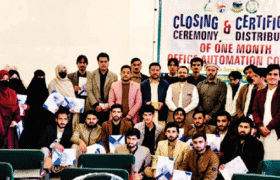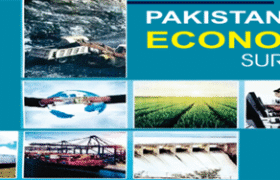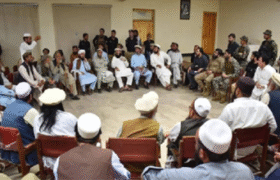Prime Minister Muhammad Shehbaz Sharif’s recent visit to Peshawar, accompanied by Chief of Army Staff Field Marshal Syed Asim Munir and key federal ministers, was a timely and reassuring gesture. It conveyed a clear and powerful message that the federal government stands firmly committed to the national unity and remains deeply connected to the people of Khyber Pakhtunkhwa (KP), who have long served as Pakistan’s frontline defenders in the fight against terrorism.
In the current circumstances, the visit helped address a growing public perception that the federal government has not been paying enough attention to KP’s challenges. By attending a representative Grand Jirga in Peshawar and listening directly to the suggestions and grievances of political leadership and tribal elders, the Prime Minister restored a much-needed sense of inclusion and mutual respect.
What made this event more impactful was the presence of the Governor, the Chief Minister of KP, and the Corps Commander Peshawar, in addition to senior civil and military leadership. Together, they engaged in meaningful dialogue on the province’s key issues, particularly its worsening security situation. Tribal elders also offered important input, and the Prime Minister gave clear assurances that all concerns, especially related to the National Finance Commission (NFC) Award, would be addressed.
In this spirit, the Prime Minister announced the formation of a special committee to review KP’s share under the NFC framework and confirmed that an important meeting on the matter would be held in August. This move reflects the federal government’s acknowledgment of the sacrifices and needs of KP, especially at a time when the province is once again facing a surge in terrorism and unrest.
The gathering also came just days before the presentation of the federal and provincial budgets. With that in mind, the visit underlined the need for economic cooperation, transparency, and coordination between all stakeholders. For sustainable development, efforts must go beyond financial allocations. They must also ensure good governance, transparency, and the elimination of corruption in the province.
The Prime Minister’s address also highlighted the importance of putting an end to the Indian-sponsored terrorism campaign, referred to as the “Fitna-Al-Khawarij.” He praised the sacrifices of the Pakistan Army, FrontierCorps, police, and local communities and affirmed that peace in KP will be protected at all costs.

A key takeaway from the event was the emphasis on the youth of KP as a national asset. The Prime Minister encouraged young people to take a leading role in promoting peace, development, and national harmony—an important message for long-term stability in the region.
Despite these positive developments, the province still faces serious political and governance challenges. As the only province where the federal opposition party, Pakistan Tehreek-e-Insaf (PTI), holds power, KP has often found itself caught in the crossfire of political tension with the federal government. This friction has negatively affected governance and delayed policy implementation.
It is therefore critical for the PTI to recognize that the people of KP have trusted it for a third consecutive term to improve the province’s condition, not to engage in endless confrontation. Constructive cooperation, not conflict, is the path forward. The Prime Minister, Field Marshal and cabinet member’s visit to Peshawar should serve as a reset point for political dialogue and collaboration.
This grand jirga and engagement with local leaders and tribal elders was more than just symbolic. It reaffirmed the federal government’s commitment to KP’s security, prosperity, and rightful share in national decision-making. At a time of increased external threats and internal polarization, this gesture of unity and respect can lay the foundation for a stronger, more peaceful Pakistan.
What is now required is consistent follow-up. Prime Minister Shehbaz Sharif must continue giving due attention to KP, while the provincial government must move beyond political point-scoring and focus on fulfilling its administrative and development responsibilities. The stakes are too high, and the people of KP, who have endured decades of war, displacement, and economic hardship, deserve nothing less than sincere, results-driven governance from all sides.
This visit was a powerful reminder that unity, dialogue, and shared purpose remain Pakistan’s greatest strengths.





